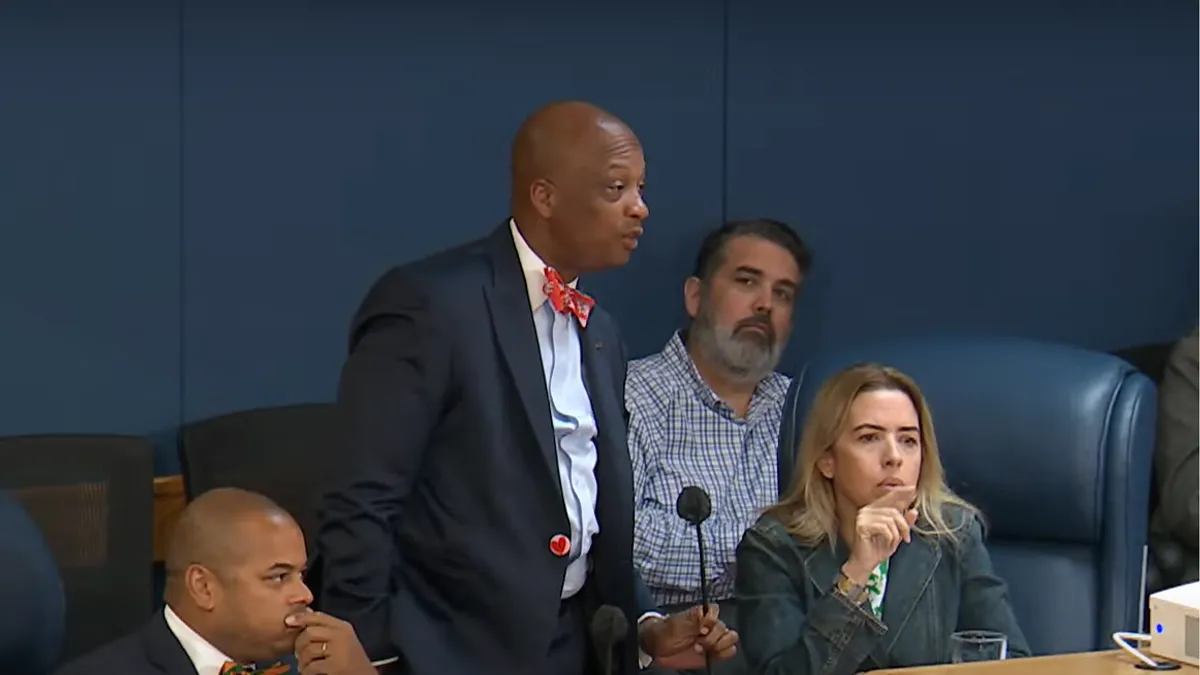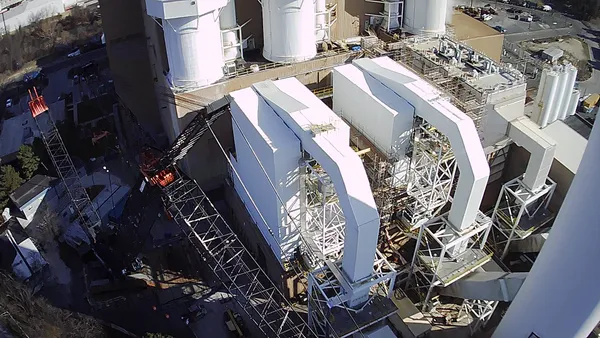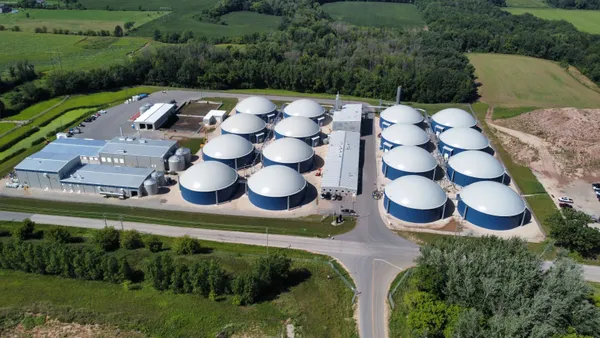Dive Brief:
- The Miami-Dade Board of County Commissioners voted on Tuesday to close down the former refuse-derived fuel facility run by Covanta Energy in Doral, Florida, which was largely destroyed by a fire in February.
- The board also chose to submit three potential sites to build a new waste-to-energy facility for a preliminary permit review by the Florida Department of Environmental Protection. The sites had previously been nominated by County Mayor Daniella Levine Cava in an August memo.
- The board continues to face larger questions about the county's solid waste budget, which were raised on Tuesday but will be discussed again at a December meeting later this year.
Dive Insight:
The county is facing difficult decisions about disposal capacity following a fire that shut down the refuse-derived fuel facility run by Covanta. The destruction of the county-owned facility could have triggered a development moratorium in Miami-Dade unless the county secured roughly 1 million tons of replacement disposal capacity annually.
Cava's office negotiated an additional 300,000 tons of disposal capacity at Waste Connections’ JED landfill, subject to renegotiating Miami-Dade’s contract with the company by March 2024. It also secured a letter
agreement with WM to increase its disposal capacity by one million tons, subject to renegotiating the county’s contract with WM in the next six to nine months, according to a supplemental memo Cava’s office sent to the board on Saturday. The mayor said the county is now in a “good position” for disposal capacity over the next decade at Tuesday’s board meeting.
In the mayor's August memo, she selected the decommissioned Opa-Locka West Airport in the northwest corner of the county as her preferred location for a new facility. That location was backed by County Commissioner Juan Carlos Bermudez, who previously spearheaded efforts to reverse a 2022 decision to build a new incineration facility in Doral. The mayor also included the current Doral resource recovery facility site and a site in Medley, near a landfill owned by WM, as finalists.
But disposal costs remain top of mind for the commissioners, who voted two weeks prior to raise the disposal fee for residents by $38 and are still facing a shortfall. During the meeting Tuesday, County Board Chair Oliver Gilbert III flagged the added cost of moving the WTE facility to the airport site, which would also require a new transfer station. The board passed a measure backed by Gilbert on Tuesday directing the mayor's office to negotiate with the leaders of Doral on some form of potential financial contribution to the county's solid waste budget.
"If we are going to move it, we need to find ways to offset the cost of moving it," Gilbert said. "If we can find ways to be helpful, we should, but it's going to cost us."
If the facility is moved, the financial contributions from Doral could come from increased property values. It would also include tax proceeds from the site of the current resource recovery facility itself in the event it is remediated and begins paying taxes. That payment would kick in only if the county decides to move the facility.
Meanwhile, the board voted to allow the mayor’s office to negotiate the closure of Covanta-run operations at the resource recovery facility. Covanta had previously urged the county to partially reopen operations at the site to provide disposal capacity over the next decade, while the county builds a new WTE facility. The site still contains a tire shredding operation, and Covanta continues to employ roughly 75 employees in case the county elected to resume partial incineration operations there, Miami-Dade officials said at the meeting Tuesday.
But Mayor Cava opposed such a move in her messages to the board. Officials told the board on Tuesday that a vote to shut down the facility for good was needed to close the matter, otherwise the county could pay up to $1 million per month to maintain the site and keep employees on standby. County Chief Operating Officer Jimmy Morales said the county had been meeting with Covanta senior leadership and was prepared to move forward with shutting down the fire-wasted site.
“If you're not going to reopen it, they've asked us, please let us know as soon as possible,” Morales said. “They can reduce their overhead and we can have less of an argument with them about what in fact we should pay them.”
During public comment, residents of Doral and Mayor Christi Fraga urged the board to shut down the site. Fraga called a partial reopening of the site “detrimental and negligent” to the communities around the former facility. She also warned that any attempts to open a new waste-to-energy site in Doral would face organized community opposition.
“Our overburdened community would be taken heavily into consideration by the relevant agencies, and I can tell you that many of the residents here would be very opposed,” Fraga said.
The proposed airport site could also face challenges. The property encompasses about 300 acres, and based on an early report from engineering firm Arcadis, a hypothetical waste-to-energy plant at that site would be placed in the southwest part of the property, about a mile from the nearest residential zone in the Broward County city of Miramar, per Miami-Dade officials.
The proposal has drawn ire from residents of Miramar and Mayor Wayne Messam, who also spoke at Tuesday’s meeting. He said the city was not consulted when the mayor and Arcadis analyzed the site, and warned his city would oppose a new waste-to-energy plant throughout the permitting process.
“Miramar doesn't want to be in this adversarial position, but because we were not heard before the recommendations were made, we have no other choice,” Messam said. “As you contemplate adoption of these resolutions, we respectfully urge the commission to not build a mass burn facility in our backyards.”
The commissioners agreed to take up the matter of selecting a final site out of the three candidates once they’ve received air quality analyses, which would give them greater insight into the potential community impacts of a new waste-to-energy facility at each of the three sites. A county official said such permits could be ready in four to six months.















